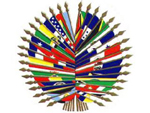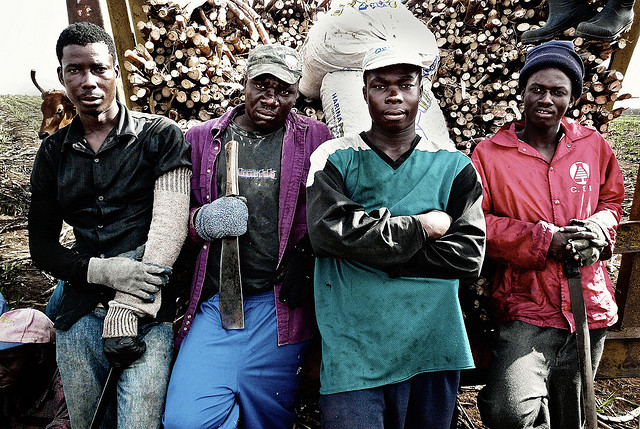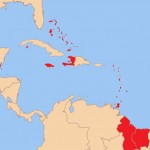Haiti-Dominican Republic Conflict: IACHR Commission Says DR Court Ruling Is Discriminatory | Haïti-RD: La sentence TC168.13 du Tribunal Constitutionnel a des effets discriminatoires, soutient la CIDH
By Staff (mm kft gp)
AlterPress
Translated from the French by Dady Chery for Haiti Chery
English | French
Dominican Constitutional Court Ruling TC168.13 is discriminatory and violates the rights of Dominicans of Haitian descent.
This is essentially the conclusion of the Inter-American Commission on Human Rights’ (IACHR) preliminary report, made public in Santo Domingo on December 6, 2013 after a one-week visit to the Dominican Republic.
“The Commission considers that the judgment of the Constitutional Court led to an arbitrary deprivation of nationality. It has a discriminatory effect that mainly impacts Dominicans of Haitian descent who are people of the Afro kind,”
said the text read at a press conference followed closely by the Dominican press.
“It retroactively denies citizenship and generates statelessness for people it does not consider its own or those of any state,” continued the IACHR.
“The Commission noted that ruling TC168.13 disproportionately affects people who experience multiple forms of discrimination, including those based on grounds of race and poverty,”
denounced the preliminary report highlighting the “extreme vulnerability” of those people.
Likewise, the Commission’s report finds the statements from the people who have criticized the Constitutional Court (Tribunal Constitucionel, TC) to be “very disturbing.” It cited among them journalists, intellectuals, lawyers, politicians, parliamentarians and human-rights defenders.
The delegation noted that it observed in the course of its visit, during which it interviewed thousands of people and met with many institutions, serious violations of the right to nationality, which indicate that the situation has worsened with the judgment of the TC.
Nearly 4,000 people have submitted to the Commission their denunciations and testimonies in the provinces of Dajabon, Jimani Bahoruco, La Romana, San Pedro, Santo Domingo Valverde, it reveals.
Therefore the Commission recommends to Dominican officials to ensure the right to nationality to people who have already had this right under the existing national regime between 1929 and 2010 and to take “measures to guarantee the right to nationality to the people affected by Ruling TC168.13.
These measures, it believes, should be general and automatic, and should be mechanisms that are simple, clear, fast and fair.
From December 2-5, 2013, an IACHR delegation investigated the Dominican Republic on everything that relates to human rights in this country: a visit that has sparked gnashing of teeth from Dominican politicians and demonstrations, but it also gave an opportunity to thousands of people to relate their humiliating, inhuman and degrading conditions.
The Dominican Republic is part of the Inter-American Human Rights system by sovereign decisions taken by the country since 1948, when it participated in the adoption of the American Declaration of the Rights and Duties of Man, and its participation in the creation of the IACHR and the ratification of the American Convention on Human Rights on April 19, 1978.
UPDATES
UPDATE #1. November 6, 2014. In a decision released on Wednesday, October 29, 2014, the Inter-American Commission on Human Rights (IACHR) found the Dominican Republic to be guilty of human rights violations in its “illegal and arbitrary detentions and further summary deportations of Dominican and Haitian nationals from the Dominican Republic to Haiti.” The ruling “determined the existence, at least for a term of roughly 10 years, starting in 1990, of a systematic pattern of deportation, including… Haitians and people with Haitian ancestry, which is in accord with a discriminatory scheme.” The IACHR found the Dominican Republic to be “internationally liable for the violation” of articles of the American Convention of Human Rights — specifically “the right to a legal personality, to a name, to a nationality and, on account of those violations, the right to one’s identity.”
With regard to the Dominican Constitutional Court Ruling that disenfranchised more than 200,000 Dominicans of Haitian ancestry, Francisco Quintana from the Center for Justice and International Law (CEJIL), one of the organizations that sponsored the lawsuit, said that “Treating people born in the Dominican Republic like foreigners in a process of naturalization, even for a very limited time, implies a complete disregard for their right to a nationality.” In response to the human rights court’s decision the DR declared that it was ending its participation due to infringement on its sovereignty. Commissioner Felipe González of the IACHR noted that “It’s not about getting into internal affairs. It’s about international obligations the Dominican Republic voluntarily acquired,” in its accession to the American Convention on Human Rights.
Sources: Haiti Chery | AlterPresse
Par le personnel (mm kft gp)
AlterPresse
Anglais | Français
La sentence TC168.13 du Tribunal Constitutionnel (TC) dominicain est discriminatoire et viole les droits des Dominicains d’ascendance haïtienne.
Telle est en substance la conclusion du rapport préliminaire de visite d’une semaine de la Commission interaméricaine des droits humains (CIDH) publié ce 6 décembre à Santo Domingo.
“La Commission considère que l’arrêt de la Cour constitutionnelle conduit à une privation arbitraire de la nationalité. Elle a un effet discriminatoire qui a un impact principalement sur les Dominicains d’ascendance haïtienne qui sont des personnes de type afro,”
dit-elle dans le texte lu lors d’une conférence de presse suivie de près par la presse dominicaine.
“Elle prive de la nationalité rétroactivement et génère de l’apatridie pour des personnes qu’elle ne considère pas des siens ni d’aucun Etat,” continue la CIDH.
“La Commission note que l’arrêt TC168.13 affecte de manière disproportionnée les personnes sujettes à de multiples formes de discrimination, y compris fondée sur la race et la pauvreté,”
dénonce le rapport préliminaire soulignant l’“extrême vulnérabilité” de ces personnes.
De même, dans son rapport, la Commission trouve “très inquiétantes,” les déclarations des personnes qui ont critiqué le TC. Il a cité parmi elles des journalistes, des intellectuels, des avocats, des politiciens, des parlementaires et des défenseurs des droits humains.
La délégation dit constater durant sa visite, au cours de laquelle elle a interviewé des milliers de personnes et rencontré nombre d’institutions, de graves violations du droit à la nationalité expliquant que la situation a empiré avec l’arrêt du TC.
Près de 4 000 personnes ont soumis à la mission leur dénonciation et témoignages dans les provinces de Dajabon, Jimani, Bahoruco, La Romana, San Pedro, Santo Domingo et Valverde, revèle-t-elle.
Aussi recommande-t-elle aux responsables dominicains d’assurer le droit à la nationalité des personnes qui ont déjà eu ce droit sous le régime national existant entre 1929 et 2010 et de prendre des “mesures visant à garantir le droit à la nationalité des personnes affectées par l’arrêt TC168.13.”
Ces mesures, estime-t-elle, doivent être générales et automatiques et devraient suivre des mécanismes qui sont simples, clairs, rapides et équitables.
Du 2 au 5 décembre 2013, une délégation de la CIDH a enquêté en République Dominicaine sur tout ce qui a rapport aux droits humains dans ce pays: une visite qui a suscité des grincements de dents de la part de politiques dominicains, des manifestations, mais qui a été également l’occasion pour des milliers de gens de faire part de leurs conditions humiliantes, inhumaines et dégradantes.
La République Dominicaine fait partie du système interaméricain des droits humains par des décisions souveraines prises par le pays depuis 1948 (quand le pays a participé à l’adoption de la Déclaration interaméricaine des droits et devoirs humains) et par sa participation à la création de la CIDH et la ratification de la Convention interaméricaine relative aux droits humains le 19 Avril 1978.
Source: AlterPresse









Comments
Haiti-Dominican Republic Conflict: IACHR Commission Says DR Court Ruling Is Discriminatory | Haïti-RD: La sentence TC168.13 du Tribunal Constitutionnel a des effets discriminatoires, soutient la CIDH — No Comments